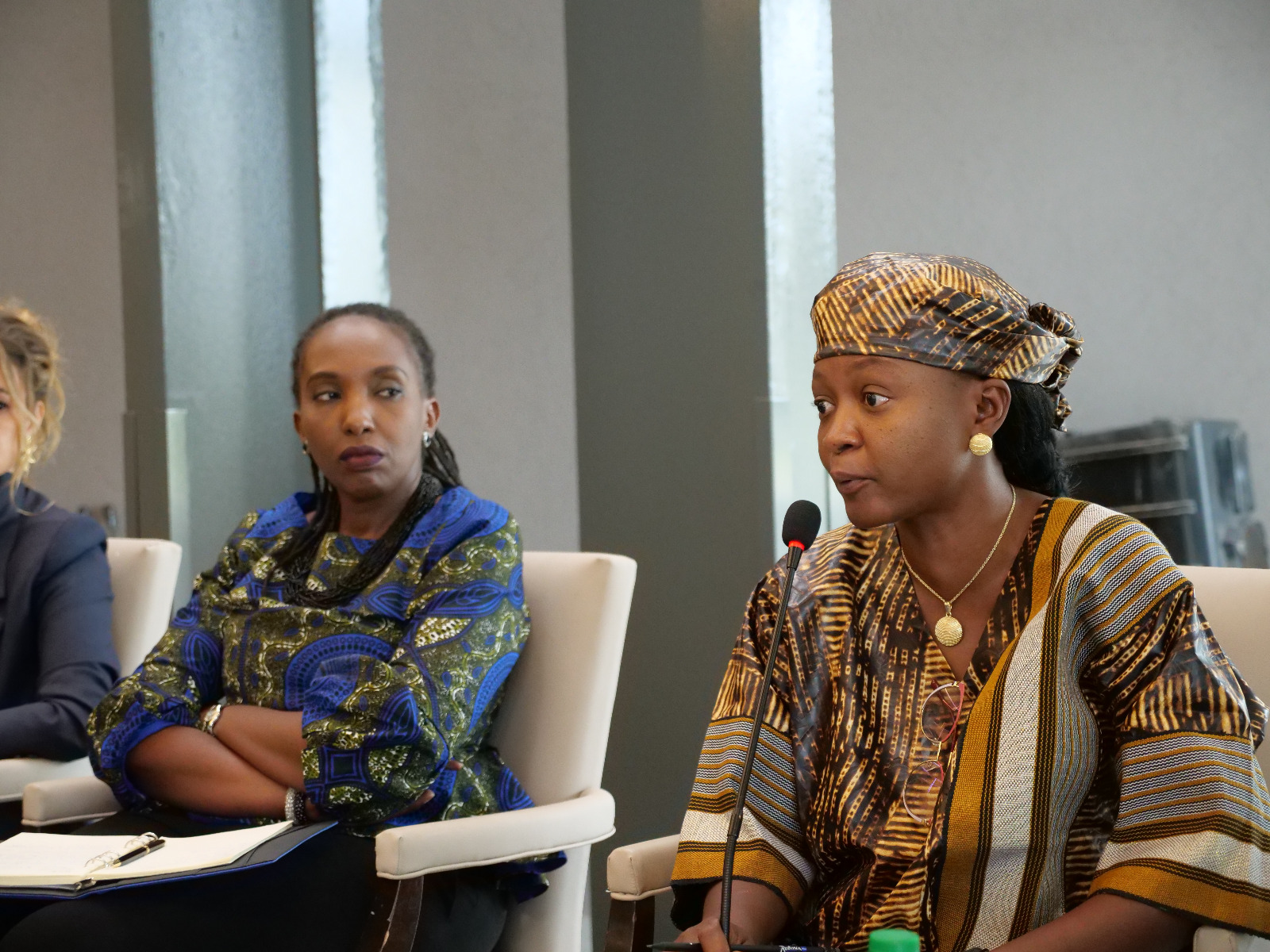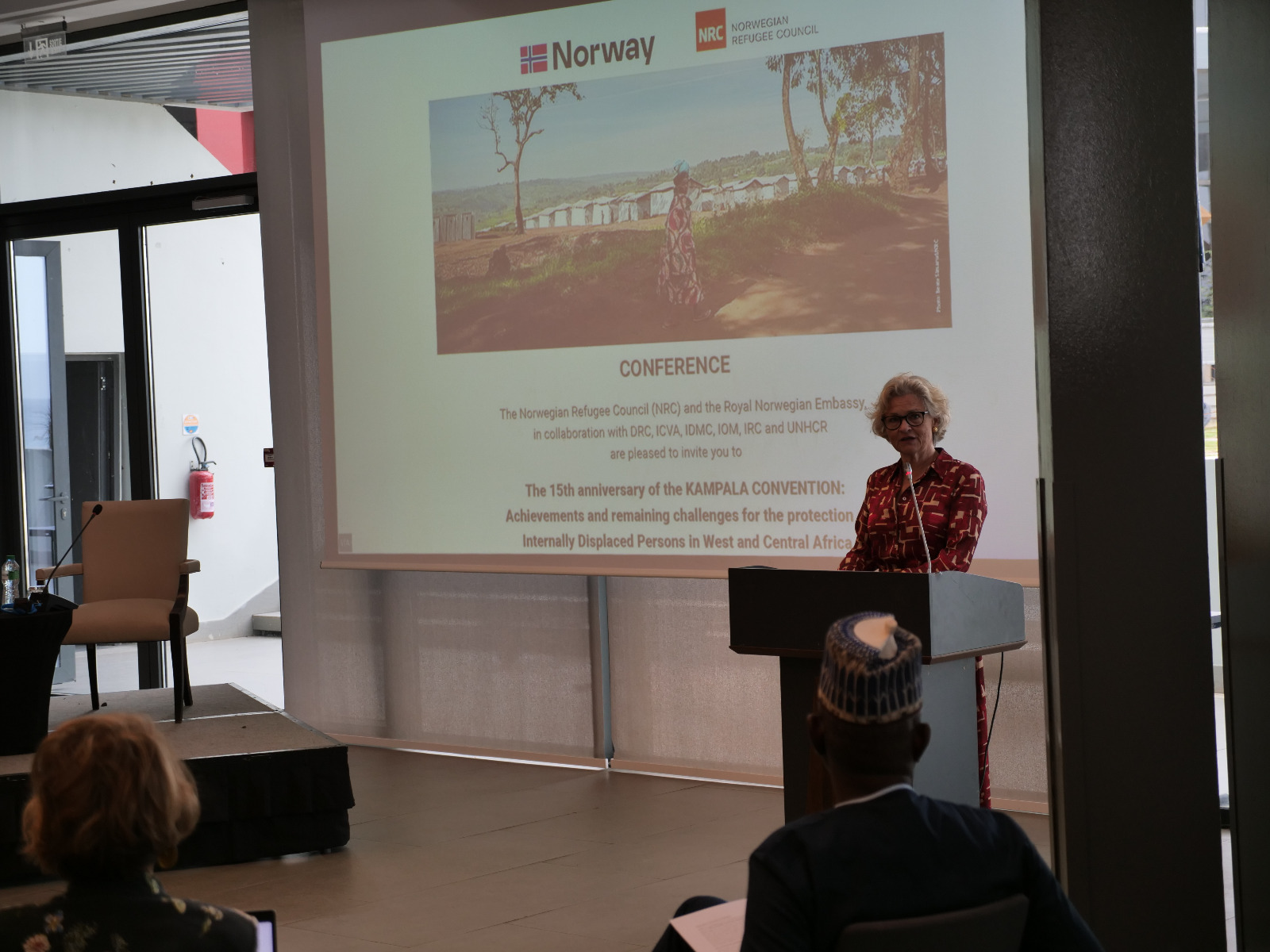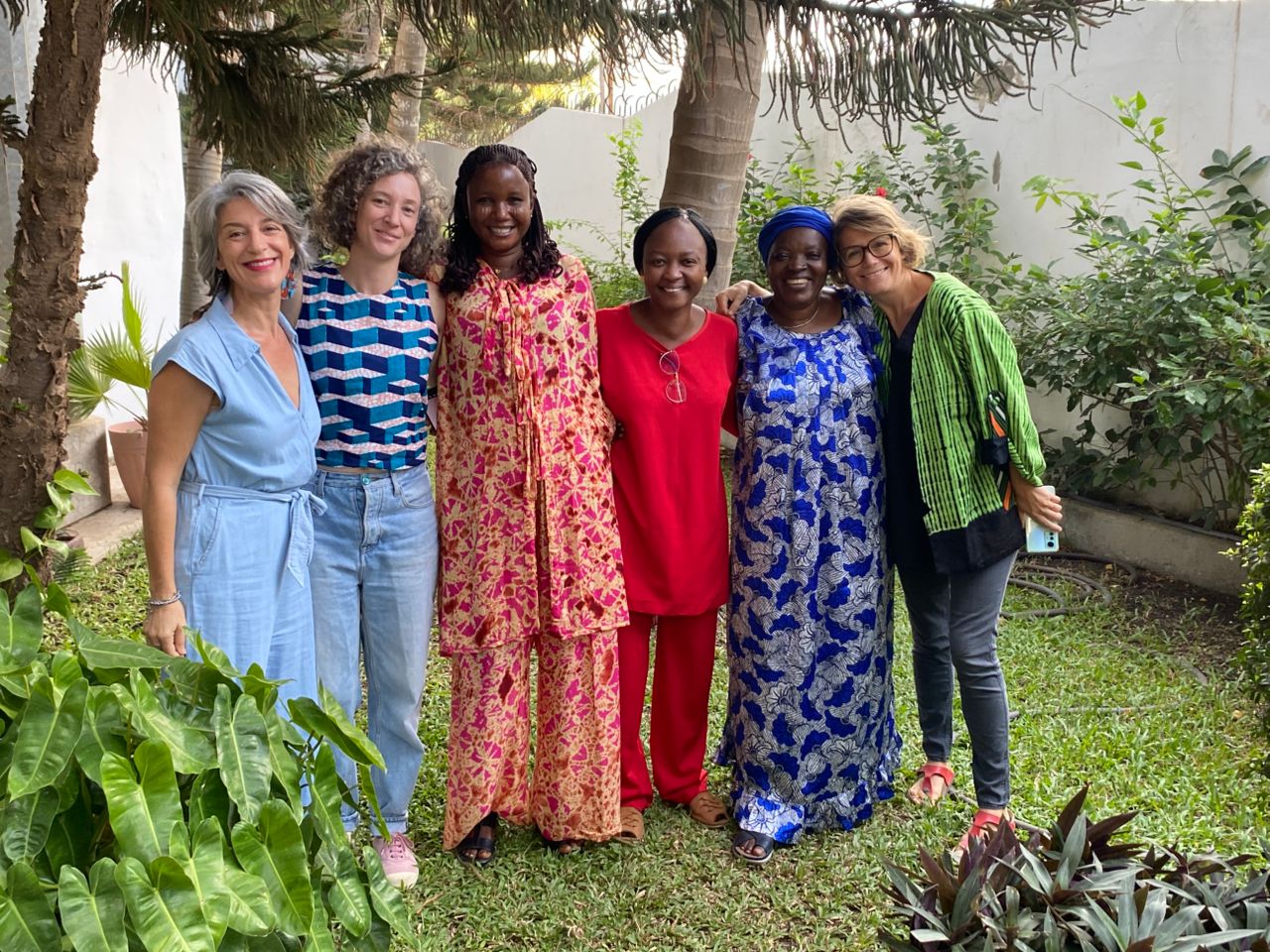Empowering Communities: Insights from Chimda Musa, Executive Director of the Rural Agricultural Transformation and Empowerment Initiative (RATEI) on the Kampala Convention.
Introduction:
As we commemorate the 15th Anniversary of the Kampala Convention, a landmark framework for the protection of internally displaced persons (IDPs) in Africa, we are thrilled to feature Chimda Musa, the Executive Director of the Rural Agricultural Transformation and Empowerment Initiative (RATEI). Based in Adamawa State, Nigeria, Chimda Musa is a visionary leader driving transformative change in rural communities. A dedicated advocate for the displaced and underserved, her organization empowers women and IDPs, particularly those displaced from Borno State, through innovative agricultural initiatives.

With extensive experience spanning Food Security and Livelihoods (FSL), Water, Sanitation, and Hygiene (WASH), Protection, and Social Enterprise initiatives, Chimda Musa combines technical expertise with a deep commitment to ethical leadership. Her participation in the FCDO-supported Capacity Building Program for Women-Led Organizations and the recent 15th Anniversary of the Kampala Convention in Dakar, Senegal, with the theme: “Achievements and remaining challenges for the protection of internally displaced persons in West and Central Africa”, showcases her unwavering dedication to creating lasting impact.
Chimda, Musa’s participation at the Kampala Convention was supported by the Norwegian Refugee Council (NRC), the Royal Norwegian Embassy, and Nigeria INGO Forum’s PLRCAP project.

In this interview, she shares her journey, reflections on the Kampala Convention, and her plans for the future of RATEI.
Interview:
- Could you provide more information about your organization, including its mission and the key challenges it addresses within the community?
The Rural Agricultural Transformation and Empowerment Initiative (RATEI) is a women-led organization founded in 2014 and officially registered in 2018. Rooted in the challenges faced by rural and internally displaced persons (IDP) communities in Nigeria, RATEI is dedicated to creating transformative change by addressing socio-economic, ecological, and agricultural challenges. Our mission centers on empowering these communities, with a particular focus on women and youth, to take ownership of their futures through collaboration and sustainable practices.
RATEI’s establishment was inspired by the pressing realities of rural disenfranchisement in Nigeria. These issues, combined with inadequate rural development initiatives, have driven many to migrate to urban centers, resulting in urban poverty and informal settlements. For IDP communities, the challenges are further compounded by displacement, loss of livelihood, and social marginalization.
Our organization works to address these interconnected challenges by empowering women and youth to lead community-driven initiatives. We believe that fostering social harmony, promoting ecological protection, and implementing sustainable agricultural practices are critical to reversing the trends of rural decline and migration. Our goal is to create a future where rural African communities, particularly in Nigeria, are resilient, peaceful, and thriving guided by inclusive leadership and sustainable approaches.
RATEI has a unique focus on IDP and rural communities, where the needs are often urgent and multifaceted. We work to restore hope and stability by providing resources, training, and platforms that enable individuals to rebuild their lives and contribute to their communities.
In summary, RATEI’s vision is a rural Africa where communities, led by women and youth, collaborate for peace, ecological balance, and sustainable agriculture. Through our mission, we strive to create pathways for empowerment, inclusion, and resilience, particularly for those most affected by displacement and rural poverty.
- How has participating in the PLRCAP program impacted your organization? Which specific tools or lessons have been the most beneficial so far?
Participating in the PLRCAP program has been transformative for RATEI, significantly enhancing our organizational capacity and operational effectiveness. As a women-led organization we recognize that building a strong internal structure is essential to achieving our mission. PLRCAP has played a role in this journey, equipping us with the knowledge, tools, and mentorship necessary to refine our approach to key aspects of organizational management.
The training sessions and mentorship classes provided by PLRCAP on Monitoring and Evaluation (M&E), Resource Mobilization, and Finance Management have been especially impactful. These focused engagements helped us understand the importance of systematic planning, data-driven decision-making, and sustainable financial strategies. Among the most significant outcomes of our participation has been the development of RATEI’s Monitoring and Evaluation (M&E) framework. This framework has become a cornerstone of our organizational processes, enabling us to measure the effectiveness of our programs, track progress toward our goals, and demonstrate accountability to our stakeholders.
The mentorship in resource mobilization has further empowered us to identify diverse funding opportunities and build partnerships that align with our vision. Additionally, the finance training has strengthened our financial management systems, ensuring transparency and sustainability in all our operations.
Overall, PLRCAP’s support has not only bolstered our internal systems but also instilled a culture of continuous learning and improvement within RATEI, built stronger relationships with other local and national NGOs, donors, and government agencies and Opportunities to connect with other NGOs, share experiences, and learn from each other. The tools and lessons gained through this program have positioned us to make a more significant and measurable impact in the communities we serve.
- You recently attended the 15th Anniversary Kampala Convention in Dakar, Senegal. Could you share some highlights from your trip and the key takeaways from the event?
The conference offered profound insights into the progress and persistent challenges of protecting internally displaced persons (IDPs) across Africa. One of the most impactful moments was hearing firsthand testimonies from IDPs, such as Brigitte Teniyanla Ouoba from Burkina Faso’s East region and Liberata Rubumba Buratwa from Goma, DRC. Their stories brought to life the critical need for implementing the Kampala Convention and ensuring its promises translate into tangible improvements for displaced communities.
I was honored to contribute as a speaker in Panel 2, which centered on “Opportunities to Advance Durable Solutions.” Alongside esteemed colleagues from IOM and UNDP, we explored practical strategies for creating sustainable pathways for displaced communities to rebuild their lives. Our discussions emphasized actionable steps to address the multifaceted nature of displacement and to suggest solutions that are both durable and climate-resilient.
Several key takeaways emerged from the conference:
- Implementation Gap: Although 34 out of 55 African Union Member States are now party to the Kampala Convention, fewer than ten countries have integrated its provisions into domestic legislation. This reveals a critical need for stronger national legal frameworks to support IDPs effectively.
- Scale of the Challenge: With approximately 35 million internally displaced persons, Africa hosts the highest number of IDPs globally, underscoring the urgency for effective, scalable solutions.
- Participation of Displaced Communities: Durable and climate-resilient solutions must actively involve displaced communities to ensure their relevance and sustainability.
- Collaborative Action: Regional collaboration and sharing best practices are pivotal. Strengthening the alignment of national policies is essential for addressing displacement challenges comprehensively.
The conference underscored the importance of partnerships between governments, international organizations, and local civil society in tackling displacement. For RATEI, the event was particularly significant, as it resonated deeply with our mission to empower rural communities and promote sustainable solutions. It reinforced the critical role of inclusive decision-making processes, particularly the active participation of women and youth, in crafting effective responses to displacement challenges.
This experience not only validated RATEI’s ongoing efforts but also inspired us to further prioritize community-driven, climate-smart solutions in our work with internally displaced and rural populations.
- How has your participation in the convention influenced your perspective on addressing displacement and humanitarian challenges? Did it inspire any immediate changes or initiatives for your organization?
The 15th Anniversary event in Dakar was particularly enlightening as it highlighted the intersection between RATEI’s mission and the broader framework of the Kampala Convention. As a women-led organization focused on rural communities, the conference reinforced several key aspects of our work while inspiring new directions.
The Convention’s emphasis on protecting communities with special attachment to land, deeply resonates with our mission, as we have been working with rural IDP communities like Yolde-Pate, Daro etc, in Adamawa State. Hearing testimonies from displaced persons across different regions reinforced our understanding that durable solutions must be rooted in local contexts and led by community members themselves.
The experience has influenced our approach in several ways:
- Enhanced Collaborative Framework Learning about successful initiatives from other regions has inspired us to strengthen our partnerships within the Network of Adamawa Non-Governmental Organizations, Network of Adamawa Women-Led Organizations and other coalitions we are part of.
- The event reinforced the importance of our focus on women and youth leadership in addressing community challenges. We are now working to enhance our programs that specifically support displaced women in agricultural initiatives.
As an immediate response, we are reviewing our existing programs to better align with the Convention’s principles, particularly in areas of food security and livelihood support. We believe this alignment will help us better serve our communities while contributing to the broader goals of displacement prevention and sustainable solutions.
- With the knowledge and exposure gained from both the PLRCAP program and the Kampala Convention, what are your future plans for your organization? How do you intend to implement these learnings to create a greater impact?
Building on our transformative experiences with PLRCAP and our recent participation in the 15th Anniversary event of the Kampala Convention, RATEI is charting a strategic path forward to deepen our impact and align our efforts with the principles of the Convention. These initiatives reflect our commitment to empowering rural and internally displaced communities while addressing the root causes of displacement and promoting durable solutions.
- Expanding Our Core Programs
We are enhancing our established areas of intervention to tackle emerging challenges more effectively:
- Food Security and Livelihood Initiatives: With an increased focus on climate-resilient agricultural practices, we aim to support communities in adapting to climate change while ensuring sustainable livelihoods.
- Environmental Protection Programs: Recognizing the Convention’s emphasis on preventing displacement due to environmental factors, we are strengthening initiatives that promote ecological stewardship and durable solutions.
- Protection Services: Special attention will be given to safeguarding women and youth in vulnerable situations, addressing their unique needs through targeted interventions.
- Strengthening Local Partnerships
RATEI is leveraging its active participation in several networks to promote collaboration and amplify our efforts:
- Network of Adamawa Non-Governmental Organizations
- Network of Adamawa Women-Led Organizations
- Civil Society Scaling Up Nutrition in Nigeria
By engaging with these networks, we aim to pool resources, share best practices, and advocate for policies that advance the rights and resilience of displaced and rural populations.
- Enhanced Community Engagement
Building on our structure of core, associate, and affiliate memberships, we are designing innovative ways to involve community members more actively in program design and implementation. This participatory approach ensures that our interventions are rooted in the lived experiences and aspirations of the communities we serve.
Through these strategic initiatives, RATEI reaffirms its dedication to empowering marginalized communities, promoting social harmony, and achieving sustainable development. Our evolving approach reflects a deep commitment to collaboration, inclusion, and resilience, ensuring that our work remains impactful and relevant in addressing the complex challenges of displacement and rural transformation.




Indeed RATEI has reaffirms its dedication to empowering marginalized communities, promoting social harmony, and achieving sustainable development.
This is a step in the right direction. I love the fact that there are visionaries whose energy and time are focused on helping vulnerable women and youth. The impact definitely is visible.
Keep up the good work